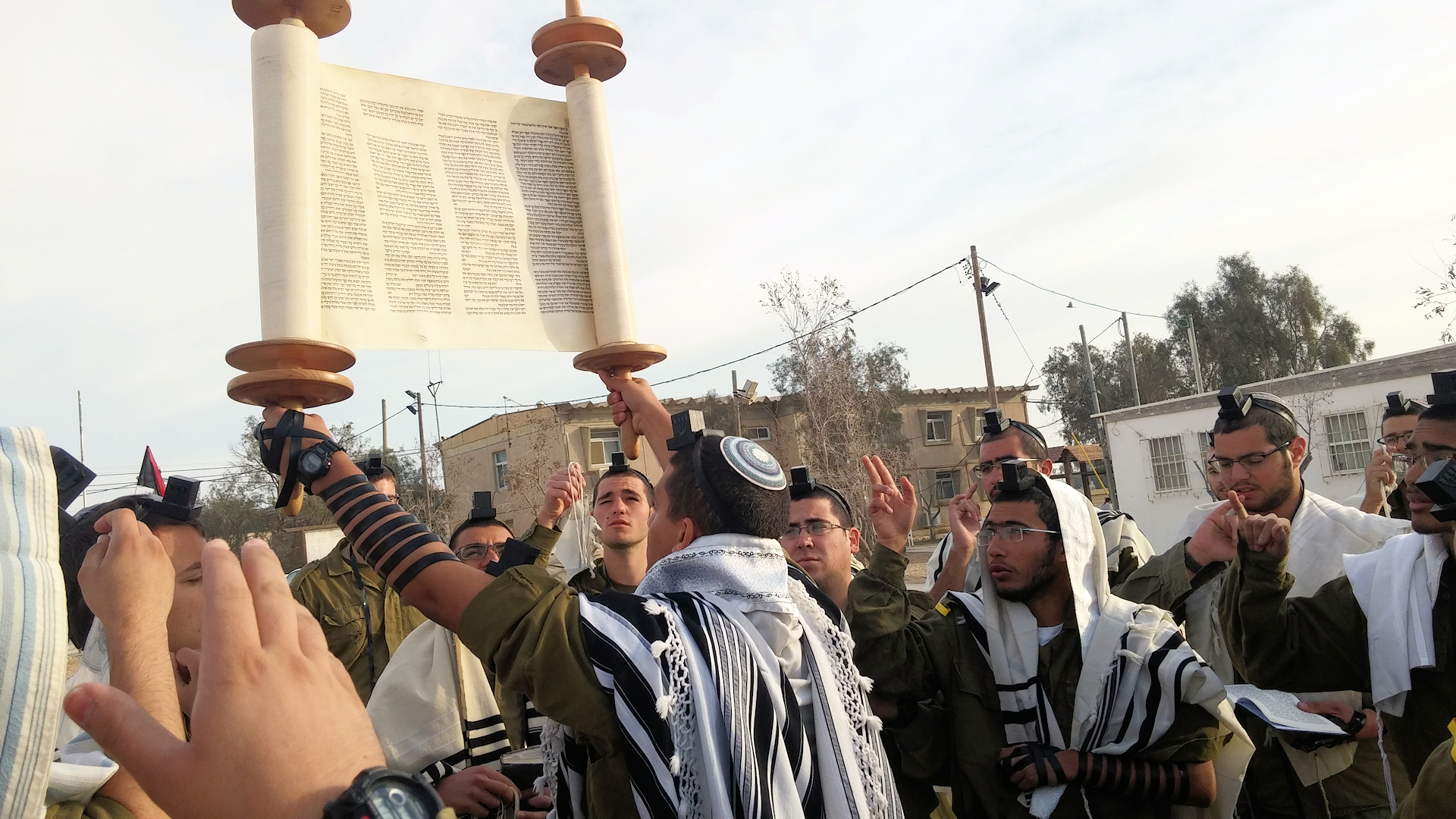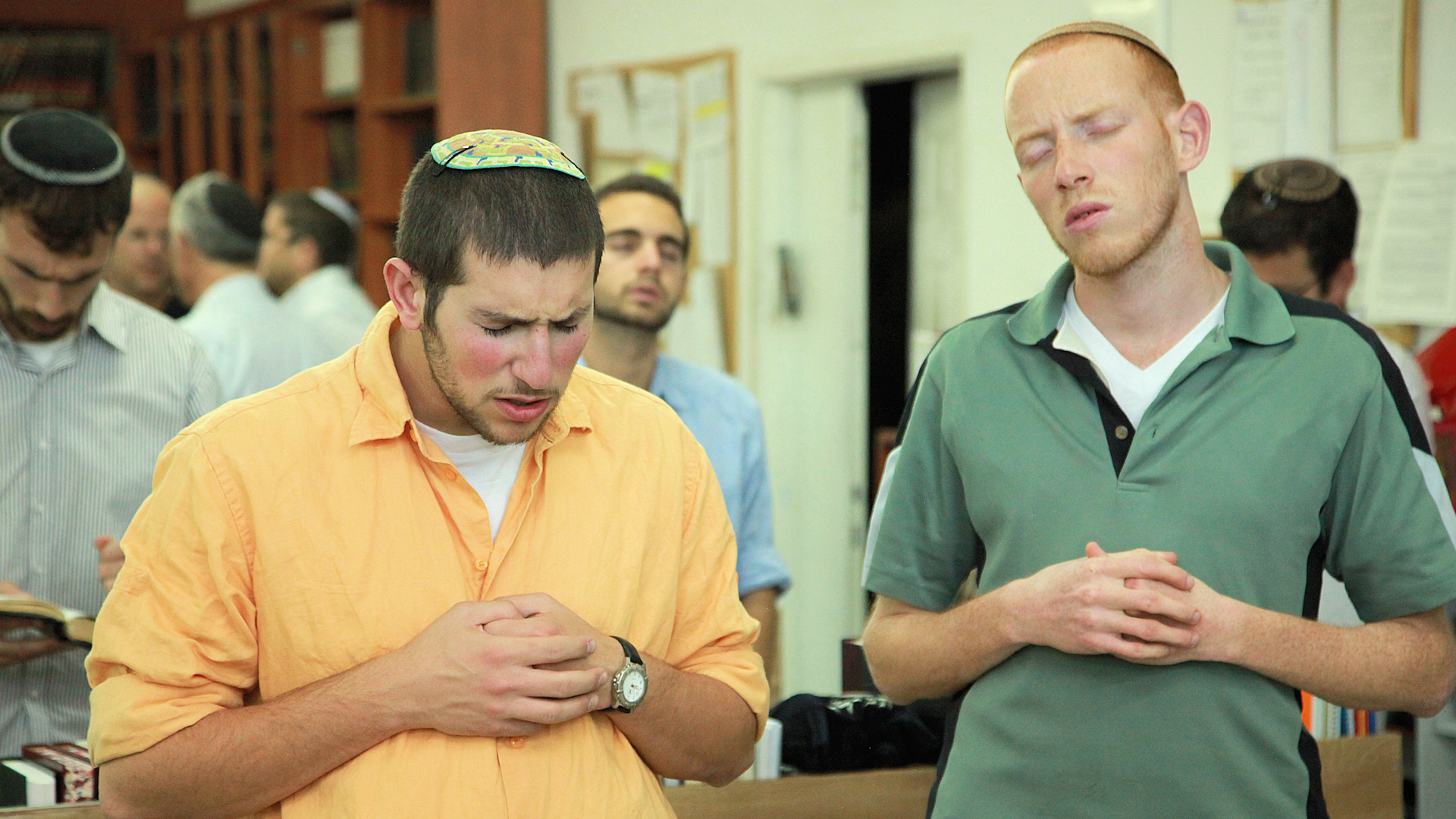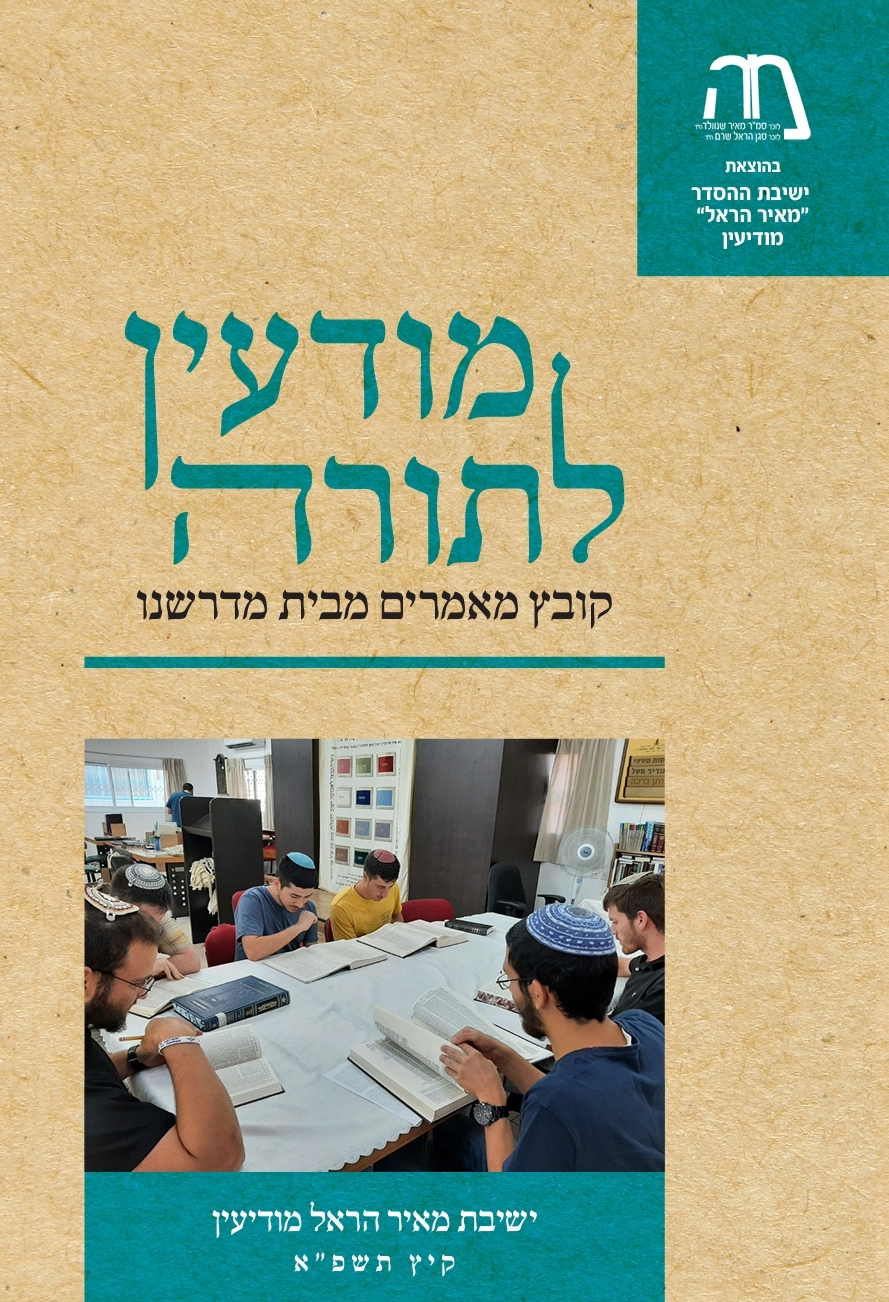Coming back home
Rabbi Eliezer Shenvald
The Parasha in our everyday life - Vayetzeh - 5781
With these words, the late Prime Minister Menachem Begin chose to call on Diaspora Jewry in his first speech as Prime Minister (23 June 1977): "I call on the citizens of Israel who have left the country to return home... We will not call these people derogatory nicknames. Insults do not solve any problem. We will just tell them: "It is time to come home".
These things that resonated in our ears then, take on a special meaning in the reading of Parashat Vayetzeh, in which Yaakov was forced to go into exile to Haran, and in the end, when possible, he fled Haran to return home to Eretz Yisrael. And especially in the week when we were informed about giving Jonathan Pollard the opportunity to come home to Eretz Israel and the State of Israel.
A study of the Psukim shows that there is a pattern that repeats itself in the descent of Yaacov into the exile of Haran, and later in his descent into Egypt. This pattern is supposed to teach us about our attitude to 'exile' and our longing for 'redemption', and for 'sovereignty in our country'.
The descent to Haran was not by choice, but out of constraint, lack of any other option, as a death-threatening escape from Eisav, until the rage had passed, and not in order to settle there: "....
הִנֵּה֙ עֵשָׂ֣ו אָחִ֔יךָ מִתְנַחֵ֥ם לְךָ֖ לְהָרְגֶֽךָ׃ וְעַתָּ֥ה בְנִ֖י שְׁמַ֣ע בְּקֹלִ֑י וְק֧וּם בְּרַח־לְךָ֛ אֶל־לָבָ֥ן אָחִ֖י חָרָֽנָה׃ וְיָשַׁבְתָּ֥ עִמּ֖וֹ יָמִ֣ים אֲחָדִ֑ים עַ֥ד אֲשֶׁר־תָּשׁ֖וּב חֲמַ֥ת אָחִֽיךָ׃
“Your brother Eisav is consoling himself by planning to kill you. Now, my son, listen to me. Flee at once to Haran, to my brother Laban.Stay with him a while, until your brother’s fury subsides"… (Bereshit 27:42-44).
The descent into Egypt was also a constraint, due to the famine that prevailed in the land:
וַיֹּאמְר֣וּ אֶל־פַּרְעֹ֗ה לָג֣וּר בָּאָרֶץ֮ בָּאנוּ֒ כִּי־אֵ֣ין מִרְעֶ֗ה לַצֹּאן֙ אֲשֶׁ֣ר לַעֲבָדֶ֔יךָ כִּֽי־כָבֵ֥ד הָרָעָ֖ב בְּאֶ֣רֶץ כְּנָ֑עַן וְעַתָּ֛ה יֵֽשְׁבוּ־נָ֥א עֲבָדֶ֖יךָ בְּאֶ֥רֶץ גֹּֽשֶׁן׃
We have come,” they told Pharaoh, “to sojourn in this land, for there is no pasture for your servants’ flocks, the famine being severe in the land of Canaan. Pray, then, let your servants stay in the region of Goshen.” (Bereshit 47:4)
And because of the emotions of the father whose soul relates to the soul of his son Yosef:
וַיֹּ֙אמֶר֙ יִשְׂרָאֵ֔ל רַ֛ב עוֹד־יוֹסֵ֥ף בְּנִ֖י חָ֑י אֵֽלְכָ֥ה וְאֶרְאֶ֖נּוּ בְּטֶ֥רֶם אָמֽוּת׃
“Enough!” said Israel. “My son Joseph is still alive! I must go and see him before I die.” (Bereshit 45:28)
The descent was not to settle there, but to 'live':
דירת עראי עד יעבור דוחק הרעב אבל לא להשתקע כמו שדרשו רבותינו.
“we came here for only a temporary stay, sojourn; At that time, they did not entertain the idea of becoming permanent residents of Egypt”. (Chizkuni Bereshit 47:4).
On the way down to Haran, Yaakov is anxious about his fate, about the unknown future. G-d reveals Himself to him in a dream, promises him to safeguard and protect him, as well as homecoming to the Land of Israel:
וְהִנֵּ֨ה אָנֹכִ֜י עִמָּ֗ךְ וּשְׁמַרְתִּ֙יךָ֙ בְּכֹ֣ל אֲשֶׁר־תֵּלֵ֔ךְ וַהֲשִׁ֣בֹתִ֔יךָ אֶל־הָאֲדָמָ֖ה הַזֹּ֑את כִּ֚י לֹ֣א אֶֽעֱזָבְךָ֔…
"Remember, I am with you: I will protect you wherever you go and will bring you back to this land. I will not leave you…" (Bereshit 28:15)
Even on the way down to Egypt, Yaacov is afraid and G-d reassures him:
אַל־תִּירָא֙ מֵרְדָ֣ה מִצְרַ֔יְמָה ... אָנֹכִ֗י אֵרֵ֤ד עִמְּךָ֙ מִצְרַ֔יְמָה וְאָנֹכִ֖י אַֽעַלְךָ֣ גַם־עָלֹ֑ה ...
"Fear not to go down to Egypt… I Myself will go down with you to Egypt, and I Myself will also bring you back…" (Bereshit 46:3-4).
On the way down to Haran, Yaakov found himself, vulnerable, helpless, dependent on his host, Laban, who exploited him, cheated, who enslaved him and extorted his salary:
זֶה־לִּ֞י עֶשְׂרִ֣ים שָׁנָה֮ בְּבֵיתֶךָ֒ עֲבַדְתִּ֜יךָ אַרְבַּֽע־עֶשְׂרֵ֤ה שָׁנָה֙ בִּשְׁתֵּ֣י בְנֹתֶ֔יךָ וְשֵׁ֥שׁ שָׁנִ֖ים בְּצֹאנֶ֑ךָ וַתַּחֲלֵ֥ף אֶת־מַשְׂכֻּרְתִּ֖י עֲשֶׂ֥רֶת מֹנִֽים׃
"Of the twenty years that I spent in your household, I served you fourteen years for your two daughters, and six years for your flocks; and you changed my wages time and again". (Bereshit 31:41).
Even in Yaacov's descent into Egypt, his sons found themselves dependent on the arbitrariness of the Egyptians
אֲשֶׁ֥ר לֹֽא־יָדַ֖ע אֶת־יוֹסֵֽף׃
"Who did not know Yosef" (Shmot 1: 8), enslaved to Pharaoh, working hard under oppression, without receiving a reward for their work:
וַיַּעֲבִ֧דוּ מִצְרַ֛יִם אֶת־בְּנֵ֥י יִשְׂרָאֵ֖ל בְּפָֽרֶךְ׃ וַיְמָרְר֨וּ אֶת־חַיֵּיהֶ֜ם בַּעֲבֹדָ֣ה קָשָׁ֗ה בְּחֹ֙מֶר֙ וּבִלְבֵנִ֔ים וּבְכָל־עֲבֹדָ֖ה בַּשָּׂדֶ֑ה אֵ֚ת כָּל־עֲבֹ֣דָתָ֔ם אֲשֶׁר־עָבְד֥וּ בָהֶ֖ם בְּפָֽרֶךְ׃
"The Egyptians ruthlessly imposed upon the Israelites the various labors that they made them perform. Ruthlessly they made life bitter for them with harsh labor at mortar and bricks and with all sorts of tasks in the field". (Shmot 1:13-14)
When the time came, Yaacov found the opportunity to escape, with his wives and all that he had, to go free on the way home:
וַיָּ֖קָם יַעֲקֹ֑ב וַיִּשָּׂ֛א אֶת־בָּנָ֥יו וְאֶת־נָשָׁ֖יו עַל־הַגְּמַלִּֽים׃ וַיִּנְהַ֣ג אֶת־כָּל־מִקְנֵ֗הוּ וְאֶת־כָּל־רְכֻשׁוֹ֙ אֲשֶׁ֣ר רָכָ֔שׁ ... לָב֛וֹא אֶל־יִצְחָ֥ק אָבִ֖יו אַ֥רְצָה כְּנָֽעַן... וַיִּבְרַ֥ח הוּא֙ וְכָל־אֲשֶׁר־ל֔וֹ
Thereupon Yaacov put his children and wives on camels; and he drove off all his livestock and all the wealth that he had amassed…, to go to his father Yitzchak in the land of Canaan… and fled with all that he had. (Bereshit 31:17-21)
Thus, ended the exile of Haran. So also, in the exile from Egypt, his sons, left Egypt in the middle of the night in a hurry, with all their possessions:
וַיְהִ֣י ׀ בַּחֲצִ֣י הַלַּ֗יְלָה וַֽה' הִכָּ֣ה כָל־בְּכוֹר֮ בְּאֶ֣רֶץ מִצְרַיִם֒ ... וַיִּקְרָא֩ לְמֹשֶׁ֨ה וּֽלְאַהֲרֹ֜ן לַ֗יְלָה וַיֹּ֙אמֶר֙ ק֤וּמוּ צְּאוּ֙ מִתּ֣וֹךְ עַמִּ֔י ...
"In the middle of the night Hashem struck down all the first-born in the land of Egypt… He summoned Moshe and Aaron in the night and said, “Up, depart from among my people"… (Shmot 12:29-31),
כִּ֣י בְחִפָּז֗וֹן יָצָ֙אתָ֙ מֵאֶ֣רֶץ מִצְרַ֔יִם
"for you departed from the land of Egypt hurriedly" (Devarim 16:3)
In both enslaving departures, the exploiter did not give up. Laban pursued Yaacov, and even caught him:
וַיֻּגַּ֥ד לְלָבָ֖ן בַּיּ֣וֹם הַשְּׁלִישִׁ֑י כִּ֥י בָרַ֖ח יַעֲקֹֽב׃ וַיִּקַּ֤ח אֶת־אֶחָיו֙ עִמּ֔וֹ וַיִּרְדֹּ֣ף אַחֲרָ֔יו דֶּ֖רֶךְ שִׁבְעַ֣ת יָמִ֑ים וַיַּדְבֵּ֥ק אֹת֖וֹ בְּהַ֥ר הַגִּלְעָֽד׃
"On the third day, Laban was told that Yaacov had fled. So, he took his kinsmen with him and pursued him a distance of seven days, catching up with him in the hill country of Gilead". (Bereshit 31:22-23)
Without G-d's explicit threat, he would have probably also hurt him:
וַיָּבֹ֧א אֱלֹקים אֶל־לָבָ֥ן הָאֲרַמִּ֖י בַּחֲלֹ֣ם הַלָּ֑יְלָה וַיֹּ֣אמֶר ל֗וֹ הִשָּׁ֧מֶר לְךָ֛ פֶּן־תְּדַבֵּ֥ר עִֽם־יַעֲקֹ֖ב מִטּ֥וֹב עַד־רָֽע׃
"But Hashem appeared to Laban the Aramean in a dream by night and said to him, “Beware of attempting anything with Yaacov, good or bad.” (ibid 24).
Even at the Exodus from Egypt the Egyptian exploiters changed their minds and persecuted the people of Israel:
וַיֻּגַּד֙ לְמֶ֣לֶךְ מִצְרַ֔יִם כִּ֥י בָרַ֖ח הָעָ֑ם וַ֠יֵּהָפֵךְ לְבַ֨ב פַּרְעֹ֤ה וַעֲבָדָיו֙ אֶל־הָעָ֔ם וַיֹּֽאמרוּ֙ מַה־זֹּ֣את עָשִׂ֔ינוּ כִּֽי־שִׁלַּ֥חְנוּ אֶת־יִשְׂרָאֵ֖ל מֵעָבְדֵֽנוּ… וַיְחַזֵּ֣ק ה' אֶת־לֵ֤ב פַּרְעֹה֙ מֶ֣לֶךְ מִצְרַ֔יִם וַיִּרְדֹּ֕ף אַחֲרֵ֖י בְּנֵ֣י יִשְׂרָאֵ֑ל
"When the king of Egypt was told that the people had fled, Pharaoh and his courtiers had a change of heart about the people and said, “What is this we have done, releasing Israel from our service?... Hashem stiffened the heart of Pharaoh king of Egypt, and he gave chase to the Israelites…” (Shmot 14:5-8)
The Egyptians caught up with them by the seashore:
וַיִּרְדְּפ֨וּ מִצְרַ֜יִם אַחֲרֵיהֶ֗ם וַיַּשִּׂ֤יגוּ אוֹתָם֙ חֹנִ֣ים עַל־הַיָּ֔ם
"the Egyptians gave chase to them, overtook them encamped by the sea…" (Ibid 9)
Were it not for the divine miracle of the parting of the Red Sea and their drowning in the sea, the Egyptians would have harmed them.
On returning home from Haran, Yaakov, who went down there single and empty handed, returned with a glorious family, and with a lot of property that he gained for his hard labor with Laban's flock:
וַיִּפְרֹ֥ץ הָאִ֖ישׁ מְאֹ֣ד מְאֹ֑ד וַֽיְהִי־לוֹ֙ צֹ֣אן רַבּ֔וֹת וּשְׁפָחוֹת֙ וַעֲבָדִ֔ים וּגְמַלִּ֖ים וַחֲמֹרִֽים׃
"So the man grew exceedingly prosperous, and came to own large flocks, maidservants and menservants, camels and asses". (Bereshit 30:43)
וַיִּנְהַ֣ג אֶת־כָּל־מִקְנֵ֗הוּ וְאֶת־כָּל־רְכֻשׁוֹ֙ אֲשֶׁ֣ר רָכָ֔שׁ מִקְנֵה֙ קִנְיָנ֔וֹ אֲשֶׁ֥ר רָכַ֖שׁ בְּפַדַּ֣ן אֲרָ֑ם
"and he drove off all his livestock and all the wealth that he had amassed, the livestock in his possession that he had acquired in Paddan-Aram" (Ibid 31:18)
On the way out of Egypt to the Land of Israel, Beit Yaacov went down to Egypt as a family, because of the famine:
בְּשִׁבְעִ֣ים נֶ֔פֶשׁ יָרְד֥וּ אֲבֹתֶ֖יךָ מִצְרָ֑יְמָהּ ...
"Your ancestors went down to Egypt seventy persons in all…" (Devarim 10:22)
And on the way out they come out as one nation. שישים ריבוא (600,000)
וַיִּסְע֧וּ בְנֵֽי־יִשְׂרָאֵ֛ל מֵרַעְמְסֵ֖ס סֻכֹּ֑תָה כְּשֵׁשׁ־מֵא֨וֹת אֶ֧לֶף רַגְלִ֛י הַגְּבָרִ֖ים לְבַ֥ד מִטָּֽף׃
"The Israelites journeyed from Raamses to Succoth, about six hundred thousand men on foot, aside from children" (Shmot 12:37)
When they left, they took with them much of the Egyptians' property who enslaved them and did not pay their salaries:
וּבְנֵי־יִשְׂרָאֵ֥ל עָשׂ֖וּ כִּדְבַ֣ר מֹשֶׁ֑ה וַֽיִּשְׁאֲלוּ֙ מִמִּצְרַ֔יִם כְּלֵי־כֶ֛סֶף וּכְלֵ֥י זָהָ֖ב וּשְׂמָלֹֽת׃ וַֽה' נָתַ֨ן אֶת־חֵ֥ן הָעָ֛ם בְּעֵינֵ֥י מִצְרַ֖יִם וַיַּשְׁאִל֑וּם וַֽיְנַצְּל֖וּ אֶת־מִצְרָֽיִם... וְגַם־עֵ֥רֶב רַ֖ב עָלָ֣ה אִתָּ֑ם וְצֹ֣אן וּבָקָ֔ר מִקְנֶ֖ה כָּבֵ֥ד מְאֹֽד׃
The Israelites had done Moshe’s bidding and borrowed from the Egyptians objects of silver and gold, and clothing. And Hashem had disposed the Egyptians favorably toward the people, and they let them have their request; thus, they stripped the Egyptians… Moreover, a mixed multitude went up with them, and very much livestock, both flocks and herds. (Shmot 12:35-38)
The pattern of Yaacov's descent into exile comes to teach us that exile did not come by choice, but by coercion. The situation in exile was very bad and there was always a longing to return home, which became real as soon as it was possible. And we must learn from this.
In the first global wave of the Covid-19, many of the Jews living in the world were strengthened by the insight that in a time of crisis it was better for them to return home, some returning in a hurry, on the last flights before the skies closed. The issue of immigration – Aliyah to Israel started being on the agenda again.
On the eve of Shabbat Parashat Vayetzeh 5781, we again call our brothers from all over the world "Come back home"! The time has come!









